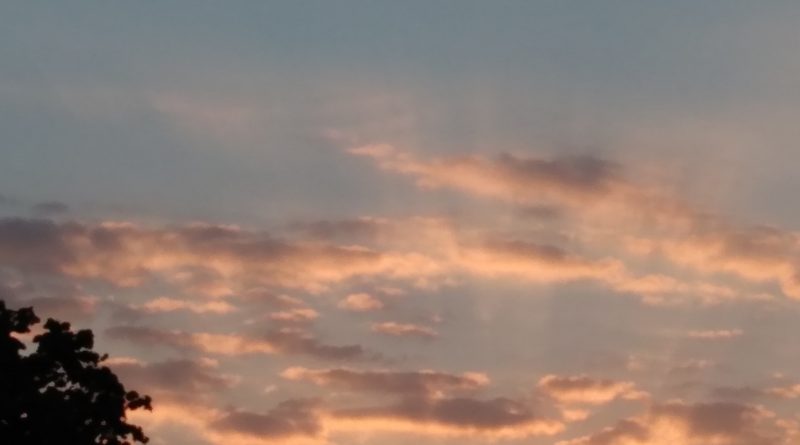Space Is The Place: The Night Sky Over Belper, June 2021
In the Night Sky Over Belper: A partial eclipse of the Sun on the 10th June, NLCs, Summer Days, the Moon and Planets.
A Partial Eclipse Of The Sun: 10th June
There will be a partial eclipse of the Sun on Thursday 10th of June. During an eclipse the Moon moves across the path of the Sun obscuring its disc. In a total eclipse the Sun is totally obscured, in a partial eclipse the effect is like a bite has been taken out of the Sun.
The partial eclipse will start around 10.05am, reaching its maximum at around 11.12am. At the maximum of the eclipse around 20% – 25% of the Sun will be obscured. The eclipse ends at 12.25pm. We will have to wait until the 25th October 2022 for the next one!
The Sun will still be very bright during the eclipse and should not be looked at directly. It is extremely dangerous to just go out and look, even a quick glance could risk permanent eye damage!
You will need to take precautions to view the eclipse safely. The best way to view the eclipse is either by using proper solar filters (designed and approved for the purpose of looking at the Sun) or through some form of solar projection where the Sun’s image is projected onto a screen or other surface (this is the method I will be using).
There is good advice about how to safely view the eclipse here: Royal Astronomical Society: Viewing The Eclipse Safely.
Noctilucent Clouds
June is a good time to look for noctilucent clouds (NLCs). NLCs are clouds that form high up in the atmosphere (about 50 miles above the Earth’s poles). The clouds are normally too faint to be seen as they are made up of ice particles. However, in the summer months the angle of the sun can sometimes highlight NLC’s so that they are visible.
It is rare to see NLCs, your best chance is to try looking towards the north-west during the darkest part of the night (from 11.00pm onwards). If lucky, you may catch sight of these glowing wispy clouds.
There is a useful guide to observing noctilucent clouds here: British Astronomical Association.
Summer Days
The 1st of June marked the start of meteorological summer.
The Summer months bring longer days and shorter nights. Technically, we are seeing extended astronomical twilight, the Sun is below the horizon, but darkness is yet to fall and there is still some light in the sky. During astronomical twilight most bright stars will be visible, but it is difficult to see fainter stars or diffuse objects like galaxies.
The Summer Solstice, the longest day of the year and the start of astronomical summer, takes place on Monday 21st of June. Sunrise will be at around 4.52am and the Sun will set at about 9.26 pm. After the Solstice, nights will start to get gradually longer. (Headline image: “Twilight, 31st of May” – by author).
The Moon
12th of June – A crescent Moon, look north-west shortly after sunset to spot it. It will be easier to see as a waxing crescent Moon on the following nights.
13th of June – Look for Mars, just below the crescent Moon
24th of June – A bright full Moon (not a supermoon).
The Planets:
Venus
If you have a low horizon it might be possible to glimpse Venus in the north-west and shortly after sunset. Venus will start to rise in the sky over the summer months, but the best views will be later in the year.
Mars
Mars is still visible. Look for it on the 13th of June, when it will be below (and will contrast with) a crescent Moon.
Jupiter and Saturn
Both planets appear in the early morning hours, rising after 1.00am. Look to the south-east to see them.
International Space Station
There are no sightings of ISS up to Thursday 17th of June.
The Spot the Station website is updated regularly so check for sightings after the 17th of June. The NASA Space Station Alerts service will give you advance notice of the best sighting for ISS.
Derby And District Astronomical Society
Derby and District Astronomical Society meetings are now online. The next “Introduction to Astronomy” meeting is scheduled for Friday the 18th of June (7.15pm) and will be a presentation on the exploration of Mars.
Meetings are held on zoom, contact the secretary@derbyastronomy.org for further details and links.


GDPR, Your Data and Us: https://nailed.community/gdpr-your-data-and-us/